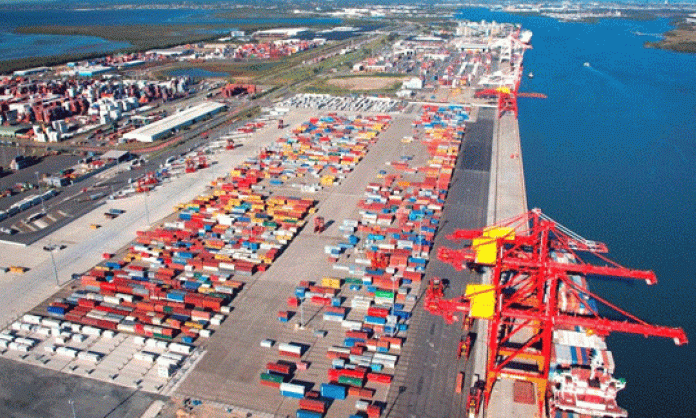Bob Carnegie, longstanding trade union activist, socialist and veteran of many landmark industrial disputes in the state, has been elected to the position of Maritime Union of Australia branch secretary in Queensland.
Carnegie defeated Trevor Munday, the deputy branch secretary of 16 years’ standing. Bob also stood for the MUA branch secretary’s position in 2011 and was only narrowly defeated on that occasion.
Red Flag spoke to him about his victory and his plans for the MUA once he takes office on 1 July.
What factors contributed to your win?
The old leadership underestimated my reputation. I’m still highly regarded for the role I played in the Seamen’s Union and the MUA, and the part I played during the 1998 waterfront dispute, particularly by older members.
People also remembered me from the last election – when I was allegedly beaten by just two votes. I was the only candidate this time who put out a leaflet with a platform and ran a principled campaign. The opposition ran a vicious character assassination campaign, saying that I’d burn the place down and would destroy the union by taking industrial action.
I won despite the whole machinery of the organisation being used against me. I had strong support from good delegates at Qube and DP World in Brisbane – they believed that the union needed a new political and industrial direction.
What are the main challenges that the union faces?
For the wharfies, casualisation, rosters and irregular working hours, which are products of the 1998 settlement. We have to rebuild the culture on the waterfront whereby people wanted to go to work because their mates were there and they had control over the job.
After the 1998 dispute, new levels of management came in, and delegates have been sacked without any proper campaign to get them reinstated. In my campaign, we said we would do everything to defend members in this situation.
For the seafarers, the main problem has been the collapse of the merchant fleet and the lack of any organised response by the union leadership, at both state and national level.
What are your goals?
I want to do two things: improve participation in the union and defend conditions. We need to re-engage the members – by campaigning, through organisation and by education, both industrial and political. I want to develop democratic structures on the ground. There has to be a levelling of the hierarchy; workers have to feel that they can participate in the decision-making process.
What are your plans for your first 100 days in office?
Three things. I will organise a branch conference open to every member of the branch. I want to involve members in trying to develop a direction for the next 12 months.
I want to run a powerful campaign to force Rio Tinto to employ 100 percent Australian crews on the company’s eight ships carrying bauxite from Weipa to Gladstone. We can sign memorandums of understanding with the company but they are not legally binding and they don’t take the place of industrial and political struggles.
And I want to deal with the non-union stevedoring operations – the Multiplex cruise terminal here in Brisbane is entirely non-union.
How will you foster members’ involvement in their union given the decline in participation over years?
Through struggle. I have huge faith in the membership and the delegates. We need to build confidence that their leadership will stand by them, no matter what. And we need politics. We look at things not from a narrow trade union perspective but from a working class perspective and that’s fundamental – not just the workers directly affected but the broad working class movement.
I believe that workers will respond to fearless, class conscious representatives who are acting in their interests and the working class movement. Hopefully, that will get them to see that there are bigger questions at stake in terms of what is happening in this society.
We need to look back to the old days of internationalism where, despite their Stalinist politics, the old leaderships of the Seamen’s Union and the waterside workers did some fine things internationally.
What problems do you see in the wider labour movement at present?
The great majority of the Australian labour movement has been co-opted into the capitalist system. Instead of fighting for workers’ rights, they have become giant voting blocs for the ALP. The ALP is 100 percent committed to capitalism. If it becomes a choice between a trade union and Goldman Sachs, the ALP will always choose Goldman Sachs.
Because unions are loyal to the ALP, they comply with the electoral cycle of the ALP. Newspoll is more important to them than enthusing their rank and file members that they can be agents of workplace and societal change. Unions need to be independent, fighting organisations for their members and their class, not appendages of the ALP.
How do you propose to remain accountable to members as branch secretary?
I will be visiting every port at least every three months and every stevedoring operation in Brisbane weekly at least. I will put out a constant stream of publicity so that members feel connected to the union.
I went into this election completely committed to changing things, to do all in my power to make the workforce powerful. I’m not in this for a career; I believe in rotational leadership and will spend no more than two four-year terms in office.
What are some of the things that give you hope?
The growth of unofficial trade unions in China. The heroism of the Palestinians on the Gaza Strip who continue to resist against odds others would surrender to. Electricians in the construction industry in Britain who are continuing to fight. And, locally, the Victorian CFMEU, who have been fined massively and attacked but are still resisting.
In the next few months, Australian unions will have to decide if they stand with the CFMEU. We have to stand by them. We can never allow the government to deregister them, like they did the BLF in the 1980s.











